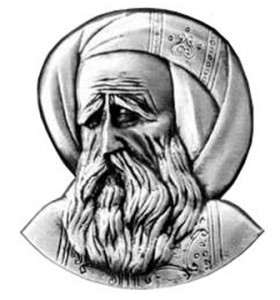 In recent years, our society has become more interested in history as a basis for national identity. According to professor and expert on Islamic philosophy and culture Dr. Anel Azimkhan, just as a tree becomes more resilient and more majestic as its roots deepen, the knowledge of one’s own history allows for more fruitful development and growth in today’s world.
In recent years, our society has become more interested in history as a basis for national identity. According to professor and expert on Islamic philosophy and culture Dr. Anel Azimkhan, just as a tree becomes more resilient and more majestic as its roots deepen, the knowledge of one’s own history allows for more fruitful development and growth in today’s world.
The importance of studying the spiritual heritage of the great philosopher al-Farabi was the subject of the conversation with Azimkhan.
You are the author of a textbook and two monographs devoted to al-Farabi. Today, no one disputes the fact that the philosopher was a landmark characterin history. But al-Farabi hailsfromdeep antiquity.Why is hispersonality sointeresting to us today?
First of all, he was a man of the classical era of Islam, asymbol of the “golden age” of Islamic culture. He was a scientist and thinker. He raised global questions about philosophy, such as human identity. What isa man? What ishis place in the universe? Still, no one knows thedefinitive answersto these questions.Al-Farabi is the common denominator linking many culturesin the Middle and Near East, so his philosophical works are still relevant today.
The full name of this thinker isdifficultto pronounce, it is Abu Nasr Muhammad ibn Muhammad ibn Tarkhan ibn Uzlag al-Farabi.
Your father, Professor AgynKassymzhanov, studied the heritage of al-Farabi.It turns out that you inherited this topic.
One could say this. My father was a Ph.D., a corresponding member of the Academy of Sciences of Kazakhstan, director of the al-Farabi Centre and chair of philosophy at Kazakh State University (KazSU). Al-Farabi’s 1,100th birthday in 1975 was celebrated in Moscow in the Column Hall of the Union House and in Alma-Ata, which hosted a major international scientific and practical conference, where my father was a co-organiser. He brought to Alma-Ata a large group of Soviet and foreign scientists, because this event was of political importance. It was not often that anIranian shakhinshakh sister visited both Moscow and Alma-Ata.
A large amount of literature was written about al-Farabi, but his contribution to the history of world philosophy has been less studied than the heritage of other Islamic philosophers, such as Ibn Sina and Ibn Rushd. Farabismwas more studied overseas. The Soviet era was a time of militant atheism, so some religious thinkers were not studied. Their names were not even included in encyclopedias.
What about al-Farabi?
The Great Soviet Encyclopaedia mentioned him only a couple of times. But after theconference, the name al-Farabiwas rehabilitated and the international forum was seen as a good opportunity to establish contacts with the Arab countries. The study of Abu Nasr also intensified in Kazakhstan. I must say that socio-political treatises are a large part of his works.
Did he create any social models?
Yes, but we must bear in mind that his worksare primarily philosophical reflectionsand not an appliedmodel for a state, political party or religious group.
In our country,al-Farabi is perceived as a sort of rationalist and as clear and understandable. In my opinion, these arefalse impressions; in his treatises,he did not describe a specific country, Caliphate or specific individuals for example. Some people compare him with theakims (governors) of our regions and districts. Al-Farabi was primarily a thinker, so we are talking about spiritual knowledge. His work is called OnViews of Residents of thePerfect City,which is aboutthe most desirable theoretical city attainable. The Islamic culturethat linkedQuranic understanding of the universe with the achievements of other cultures and civilisations fueled his belief in the need to establish a city embodying the unity of the cosmos.
Wasn’t al-Farabi utopian in his thinking?
No, because some utopias turn into horrible things. The famous “Sun City”of Campanella is an utterly overregulated state, which could only exist inside of a totalitarian regime. It just sounds nice to us, but in reality, everything is not as it appears.
How would you define the orientation of the philosophy of al-Farabi?
Al-Farabi was associated with all areas of knowledge, arts and education. In Baghdad, the stranger from Farab,because of his talent, was in demand as an expert in logic, music, astronomy, and later, as an experton ancient sciences. He was anancestor of Falsafa, who continued and developed the ancient traditions and the philosopher’s essence by raising fundamental issues of world order and cognition.
Can he be considered a bridge between cultures and time?
Yesand his great mission wasto unite East and West. Representatives of various religions were among the teachers of al-Farabi and his followers. Highly renowned Jewish philosopher Moses Maimonides highly praised al-Farabi. He,as well as al-Farabi, believed that philosophy leads to intellectual and moral perfection. Although, when I mentioned this to one of the rabbis, he was just outraged, simplybecause it was a different time! Yes, this was another time, another age, but words of Maimonides’admiration towards al-Farabi are well recorded.
It is known that Jewish philosophers thoroughly studied Arabic philosophy, including the works of al-Farabi. Some writings of al-Farabi were preserved in manuscripts written in Arabic using the Hebrew script.
Do you not think that we are mythologising him?Could such a titan appear in aremote province in the modern day’s south of Kazakhstan?
Indeed, al-Farabi, who came to Vesidzh, lived and studied in the Farabi district prior to his arrival in Baghdad, the city of peace. But in southern Kazakhstan, a personality of this magnitude appearing does not seem strange if we remember that this region hasa long history and ancient culture. This is a question I was trying to develop during theguest lecture titled the Dossier of Abu Nasr al-Farabi at KIMEP. This issue is also raised in our joint work with Academician Karl Baipakovtitled“All roads lead to Turkestan,” which was released late last year.
The level of education ofprivileged Turks was quite high. This is evidenced by the fate of this great scientist, who got the name the Second Master (with the First Master being Aristotle).
How is al-Farabi’s birthplace in southern Kazakhstan marked?
There are no specific symbols. In Soviet times, it was on the Ovtsevod farm in the Shymkent region. Today, it is in the South-Kazakhstan region,in theOtrar district near the modern village of YeshkiKora which is comprised of only about 10 homes. Oksus-tobecity, or Vesidzh, is located at a distance of 3.5 kilometres from the settlement. Here, archaeological excavations are being held, but as it seems to me, due attentionis not beingpaid.
Why not? WhyisVesidzhneglected if a genius like al-Farabi came from this city?
Anatoly Nagler, representing the Eurasian Department of the German Archaeological Institute, noted the huge interest of the West in Central Asiancivilisations. In our conversation, he said, all that can be connected with the name of al-Farabi and his homeland is of great historical and scientific interest.
Why are you so attracted to al-Farabi? Are you going to find something new?
Everything related to him is interesting to me; it seems to me that al-Farabi is the key to understanding that era. It is not a simplekey, but the one with a secret that can open some amazing and interesting things, because this Otyrar scientist opened newhorizons of music and logic, cosmology and metaphysics which are the doctrines of intellect and language.
Do you work with the originals while studying the works of al-Farabi?
No, I work with what is available in Russian and English. Formy book,the Philosophical Offering of al-Farabi, published in 2006, I used fragments ofan al-Farabi translation provided by Russian philosophersTaufikIbragim and Natalya Yefremova.
Where are the manuscripts of al-Farabi’s works kept?
His manuscripts are scattered throughout the world. Europe knows Al-Farabi very well. Much of his treatises were perceivedby Christian thinkers such as Albertus Magnus and Thomas Aquinas, because they are about monotheism and the nature of God. This is relevant nowadays since people became interested in everything that has to do with the spiritual realm.
You are talking about faith. How was faith understood by al-Farabi? What was it tohim?
I must say that Islamic philosophy is considerably different from the secular understanding of philosophy in Western culture, as it is directly related to the elements of the divine. This relates to the philosophy of al-Farabi. Knowledge of the Almighty, the creator of the world, according to al-Farabi,is the primary goal of philosophy.
Were the scientists of al-Farabi’stime tolerant?
Of course, they were,counter-arguments were put forward and there were disputed provisions anddisagreement on certain points, but tolerance prevailed. Tolerance means respect for personality, for representatives of different religions, cultures and different peoples.
Al-Farabi’s tolerance, as it seems to me, was also a type of openness and willingness to accept other people’s knowledge and share yours.
You are right, the pursuit of knowledge and curiosity was his essence. He could look at the sky and think about the relation between the sublunary and superlunaryworlds. Then,knowledge was important, in that distant time, a tribute was taken not only in gold, but also in manuscripts, scientific translations in Baghdad’sBayt al-Hikma academywere compared withgold.
It feels like you regret that modern society has lost its spirituality and the measure of all things is now money.
Our society has changed, it has its disadvantages, but there are also positives. For example, looking at the materials of the Ministry of Culture of Kazakhstan, I see that now with the authors selected by the Committee for the publication of relevant literature, contracts are concluded. Three years ago, I had to abandon book reprints, as I was completely removed from straightening and readings. The publisherwho won the tender said 2,000 copies must be issued withinone month,without any contract. Now, the organisation of scientific publications hasimproved and pleases.
It is clear that scientific research suggests independence, concentration and freedom, but on the other hand, we need a scientific environment, communication and new information. Now, theInternet gives such a great opportunity: it is possible to find yourself at a scientific conference in any part of the world and to see and hear experts from different countries observe the discussion and ask questions. Thanks to the Internet, I learned that my book,The philosophical offering of al-Farabi,is included in the catalogue of the National Library of Australia with tags and keywords.
Newton once said that he could look so far because he stood on the shoulders of titans. In our history, there arealso titans and we must stand on their shoulders…
You are right, according to al-Farabi, philosophy is the absolute knowledge present in various forms in different nations. Its value is universal, its principles are universal. That is a philosophy, which appeared as a consequence of Abu Nasr.Thought is the foundation of world culture. A developed stateneeds philosophy.Without it, it would be too mundane. Without latitude of the philosophical view of the modern world, human life becomes devoid of prospects of spiritual evolution. We must remember this.

